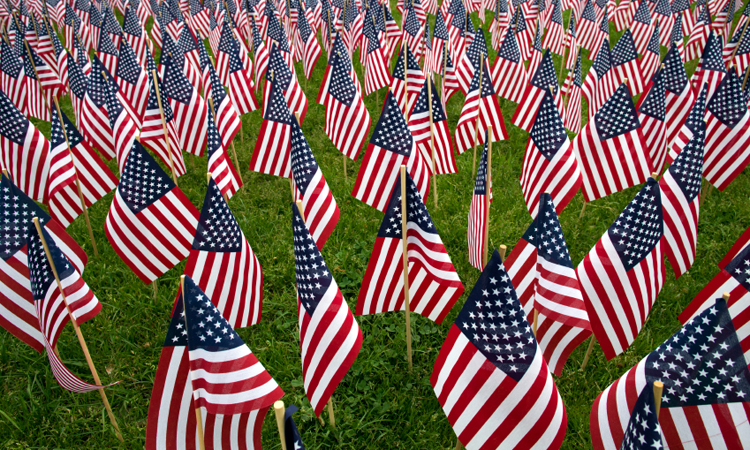
On Memorial Day, we commemorate and honor the service men and women who died while serving their country. My heart and prayers go out to anyone who has lost someone who served in the US military. My thoughts are also with our veterans today, who all too often return to our country with significant health concerns.
The issues our veterans face are very important to me. That’s why I’m a big supporter of Congressman Tim Ryan’s work to improve the quality and variety of care that America’s heroes receive and what his organization, Mindful Nation, does to support military troops and families as well as schools and hospitals.
I am also encouraged to read the research from Emma Seppala, Ph.D., associate director of Stanford University’s Center for Compassion and Altruism Research and Education, which shows that meditation and breathing exercises can help veterans recover from post-traumatic stress disorder (PTSD).
According to Seppala, this is the first randomized, controlled study to show such long-term, lasting effects of meditation or yoga for veterans with PTSD. I was touched by how much of her heart went into her science. Seppala said, “This study was the most moving research experience of my career. The veterans in the study told me things like, ‘Thank you for giving me my life back.’”
Traditional medication and therapy are not always effective in treating or preventing the flashbacks, severe anxiety, and suicides associated with PTSD. However, studies have shown that Sudarshan Kriya yoga can help treat anxiety, addiction, and depression. So Seppala and her colleagues worked with 21 veterans from the wars in Afghanistan and Iraq, teaching them Sudarshan Kriya yoga, to see if meditation (which is part of this yoga practice) could provide relief.
Seppala reported, “It resulted in reduced PTSD symptoms, anxiety, and respiration rate…[and] showed the strongest effect on hyper-arousal and the reoccurrence of traumatic memories and nightmares.”
Importantly, it wasn’t just a short-term fix. As Clifton Parker wrote in the Stanford News:
When the scientists asked the veterans whether they had continued practicing at home, a few had but most had not. The data showed that whether or not they had practiced at home, it did not hinder meditation’s long-term benefits.
One reason, Seppala suggested, is that Sudarshan Kriya yoga retrained the veterans’ memories.
Before the breathing meditation training, participants reported re-experiencing traumatic memories frequently and intensely, Seppala said. Afterward, they reported that the traumatic memories no longer affected them as strongly or frequently.
While most veteran studies see large dropout rates, most of the veterans in Seppala’s study stuck to the program.
Because I care so deeply about veterans’ issues and the kind of research Seppala is doing, I want Rewire Me readers to know about Dr. Edward Tick’s book, Warrior’s Return: Restoring the Soul after War, and Soldier’s Heart, which was founded in 2006 to address the invisible yet very real wounds resulting from war and military service. Soldier’s Heart is sponsoring an event on June 11-14, 2015 for female veterans, called Soldier’s Heart Healing Retreat for Women Warriors and Community, which I highly recommend, too.

Rose Caiola
Inspired. Rewired.
Click here to find out more about Rose’s thoughts on wellbeing and health

